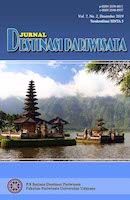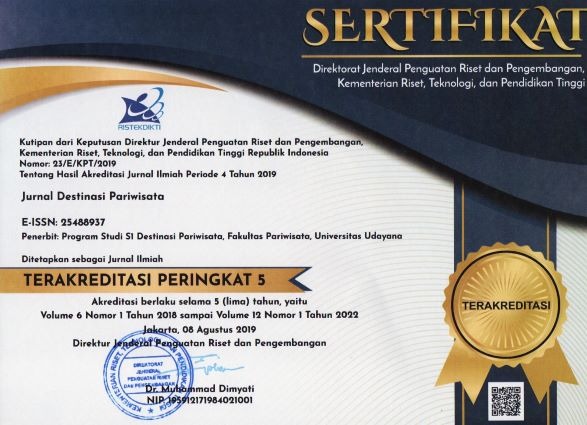Reidentifikasi Konsep dan Teori Dalam Memahami Fenomena Blind Spot Penelitian Pariwisata di Bali
Abstract
Tourism science has been recognized as a scientific discipline in Indonesia since 2008. However, because of this interdisciplinary and multidisciplinary genealogy, it creates many scientific problems. The purpose of this paper is to understanding concept and theory of tourism science that very complex. The research was conducted in Bali, using qualitative methodology with library study methods, observation and in-depth interviews. The technique of determining informants used purposive sampling and qualitative data analysis techniques. The results of the study show that the concepts and theories of tourism are still largely referring to previously established sciences with many borrowing concepts, theories and other scientific methods. This fact make “the big machine of concept and theory” trigger as a blind spot. Very natural for a new science with interest wide ranging subject / object of research. Such an approach, the research findings that blind spot phenomenon in tourism research can be solved. In the industrial revolution 4.0 era, for existence tourism science more research must produce new concepts, theories and innovations.
Keywords: Concept, theory, blind spot, science, tourism
Downloads









